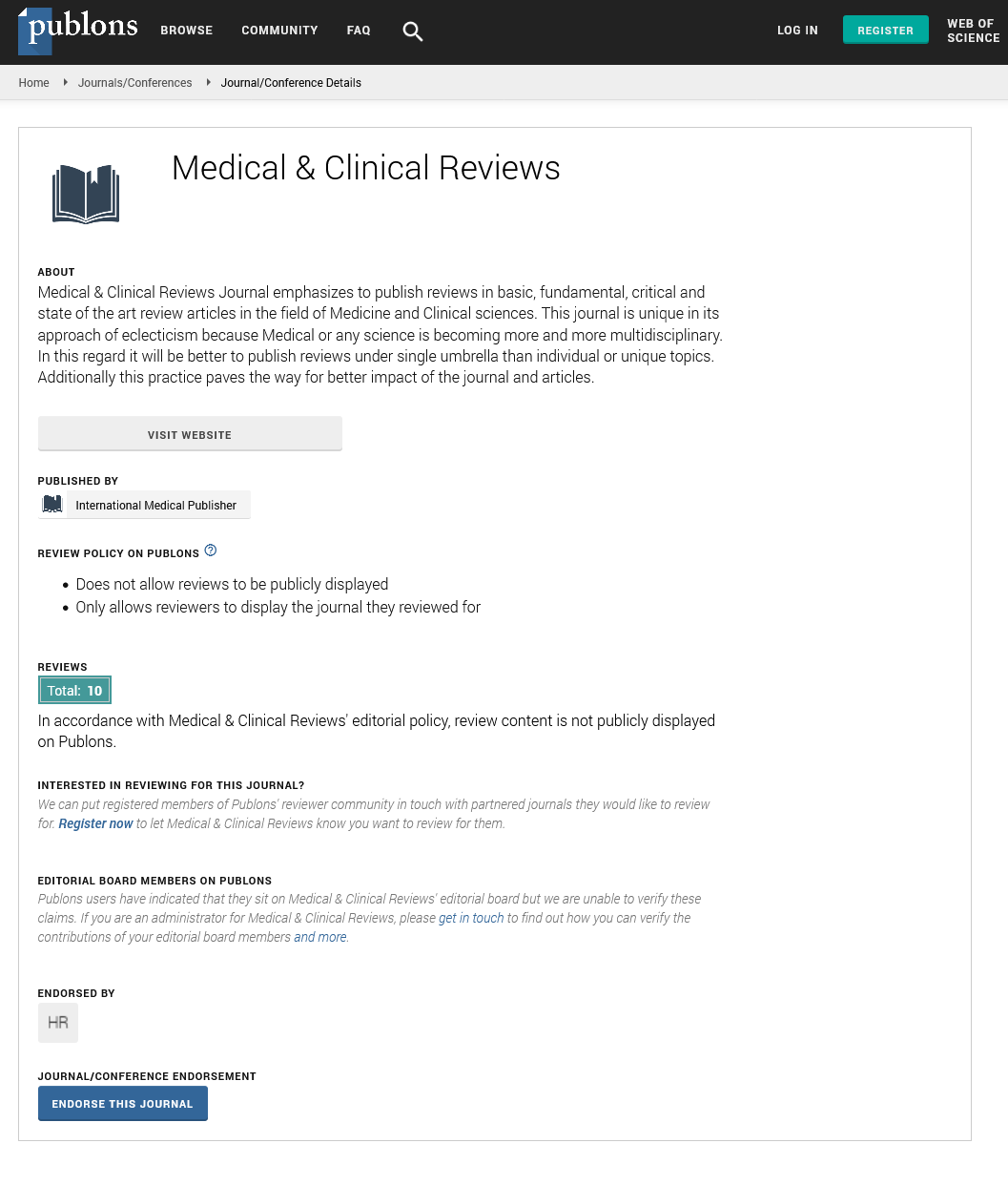Abstract
Biomarkers: Promising Tools for Detection of Early- Stage-Lung Cancer
Lung cancer, a malignant lung tumor with several histological variants arising from various cell types for instant alveoli, bronchial mucous gland, bronchioles, and bronchial epithelium, continues to cause significant mortality worldwide. As advances in therapy treatment continue to be made, the overall prognosis for the patients diagnosed with the tumor remains poor. While the prognosis of lung cancer is generally bleak, with 5-year survival rates of only 15%, there is hope, and evidence, that early detection of lung cancer can reduce the mortality rate significantly. Traditionally, markers such as age, status, performance, and disease stage have been used to risk-stratify patients and also guide therapeutic decisions. Useful information is obtained from these markers, but more sensitive markers are urgently needed. For several years, researchers throughout the world have extensively investigated several screening modalities for lung cancer detection, such as computerized tomography, chest X-ray, positron emission tomography, sputum cytology, magnetic resonance imaging, and biopsy. However, these techniques are not convenient for patients with other pathologies, they have also been found to produce high cost and potentially false- positive results. Developing a rapid and sensitive technique for the early diagnosis of lung cancer is needed. Several markers have been identified by molecular and genetic studies, which seem to play critical roles in carcinogenesis and influence the outcome of the patient. This article reviews statistics of lung cancer in general, types of lung cancer, several biomarkers that have been identified in lung cancer, their predictive and prognostic roles. This review also summarizes the most recent potential biomarkers that have been discovered, some biomarkers and biosensors used in the detection of cancer, their detection limits, and challenges and future prospective.
Author(s):
Lucia Kiio* , Damaris Mbui and Peter Ndangili
Abstract | Full-Text | PDF
Share this

Google scholar citation report
Citations : 906
Medical & Clinical Reviews received 906 citations as per google scholar report
Medical & Clinical Reviews peer review process verified at publons
Abstracted/Indexed in
- Google Scholar
- China National Knowledge Infrastructure (CNKI)
- Directory of Research Journal Indexing (DRJI)
- WorldCat
- Publons
- Secret Search Engine Labs
Open Access Journals
- Aquaculture & Veterinary Science
- Chemistry & Chemical Sciences
- Clinical Sciences
- Engineering
- General Science
- Genetics & Molecular Biology
- Health Care & Nursing
- Immunology & Microbiology
- Materials Science
- Mathematics & Physics
- Medical Sciences
- Neurology & Psychiatry
- Oncology & Cancer Science
- Pharmaceutical Sciences


